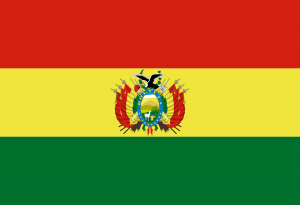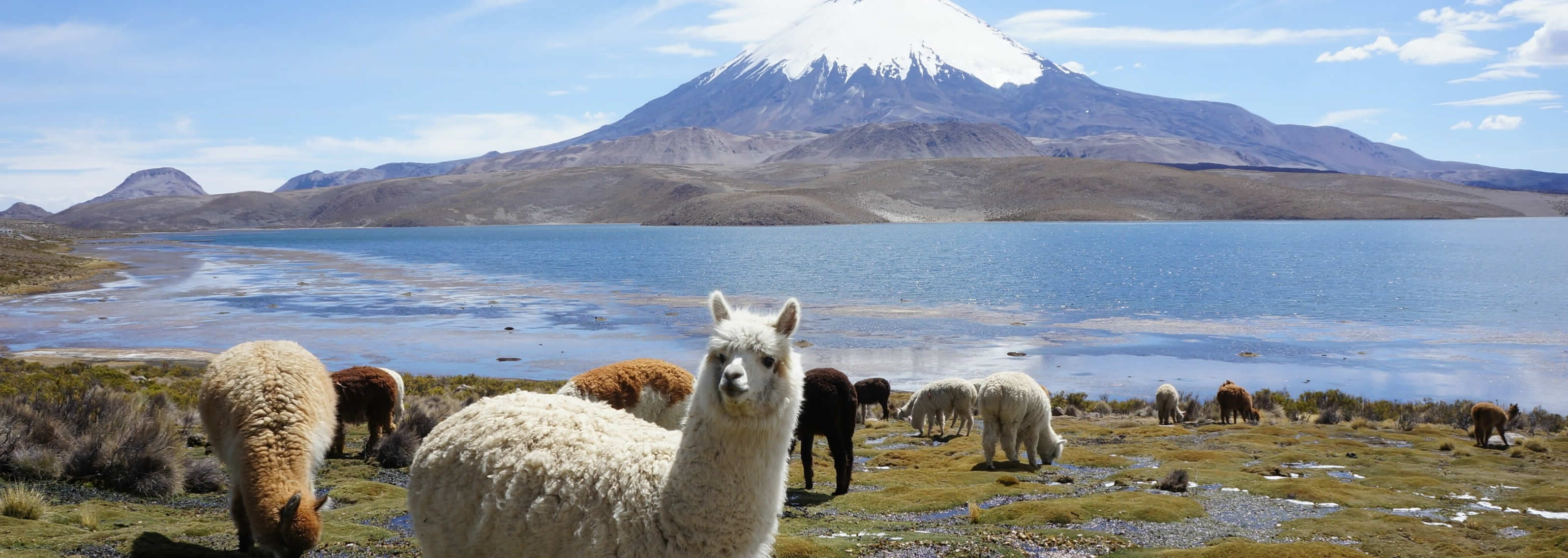Language/Spanish/Culture/Bolivia-Timeline
Jump to navigation
Jump to search
Rate this lesson:
Historical Timeline for Bolivia - A chronology of key events
Bolivia Timeline[edit | edit source]
| Date | Event |
|---|---|
| 1200 | Birth of the Inca tribe with Manco Capac. Legend has it that their origin is the Island of the Sun on Lake Titicaca. |
| 1400-1438 | Reign of Viracocha, eighth Inca, who extends the empire around Cusco in Peru. |
| 1438 | Victory against the Chancas, and start of the rapid expansion of the Incas with Pachacutec (son of Viracocha), which continues with Tupac Yupanqui and Huayna Capac. |
| 1527 | Death of Huayna Capac, who opens a war of succession between Huascar Capac and Atahaulpa, half-brothers. |
| 1531 | Arrival in Bolivia of Francisco Pizarro and a handful of Spaniards (estimated between 129 and 180 approximately). |
| August 29, 1533 | Atahualpa is executed by the Spaniards. It is estimated that the native population rose from 12 or 15 million individuals to just over 600,000. |
| 1536 | 1st in a long series of Inca revolts, under the leadership of Manco Inca. The revolts continued until 1572. |
| 1546 | Potosí is declared an imperial city by Charles Quint. |
| 16th-18th centuries | About 6 million Indigenous people die in silver mines. |
| 1780/1781 | Important indigenous revolt, led by Túpac Amaru. |
| 1809 | Revolt led by Pedro Domingo Murillo, which ends in a bloodbath. |
| 1825 | Independence and the first Constitution of Bolivia, following the wars led by Bolivar and Sucre in particular. |
| 1879-1883 | Pacific War, fought jointly with Peru against Chile, which wins; Bolivia loses its access to the sea. |
| 1904 | War of Acre with Brazil; Bolivia loses another large part of its territory. |
| 1932-1935 | War of the Chaco with Paraguay; Bolivia is still losing around 200,000 km² of its territory. |
| 1952 | Workers 'and peasants' revolution organized by the Revolutionary Nationalist Movement (MNR). |
| 1967 | Assassination of Ernesto Che Guevara in the south-east of the country. |
| 1971 | Coup d'état by General Banzer. |
| 1979 | A woman in the presidency: Lidia Gueiler ... but bloody coup d'état by General Garcia Meza (sentenced to 30 years in prison in the mid-1990s and since then imprisoned in the high security prison of Chochocoro, near from La Paz). |
| 1982 | Return to democracy with the leftist government of Hernan Siles Suazo. |
| 1985 | Paz Estenssoro, leader of the MNR, returns to power. |
| 1989 | Election of Jaime Paz Zamora; coalition government. |
| 1993 | Election of Gonzalo Sanchez de Lozada. |
| 1997 | Election of General Hugo Banzer. |
| August 2001 | For health reasons, resignation of Hugo Banzer and interim of Jorge Quiroga. |
| June 2002 | Gonzalo Sanchez de Lozada returns to power. |
| October 2003 | Flight of the president under the pressure of incessant social movements (gas war); interim of Carlos Mesa. |
| June 2005 | New social movements which lead to the resignation of President Mesa; formation of a provisional government led by Eduardo Rodriguez Veltzé, President of the Supreme Court. |
| December 2005 | The Amerindian Evo Morales Ayma of the Movimiento al Socialismo (MAS) party is the first indigenous head of state elected in Bolivia. His radical positions often come up against the incomprehension of the middle classes and Cambas (The term cambas designates the inhabitants, often mixed-race, of the lowlands, as opposed to the kolas, Indians of the highlands. This duality always symbolizes the fracture of Bolivian society). However, it was necessary to act quickly and hard to reform an unequal society since the Spanish colonization. |
| October 2006 | An agreement between the government and some twenty foreign oil companies is signed as part of the country's major plan to nationalize the country's hydrocarbons announced on May 1, 2006 by the president. |
| May 2008 | The constitutional crisis that the country has been going through since the election of Evo Morales has still not been resolved. A referendum for the adoption of a constitutional reform is organized on May 4, but it is boycotted by the opposition. |
| The region of Santa Cruz, led by Ruben Costas, keeps the same date to organize a popular consultation on the autonomy of the region. Widely acclaimed, this referendum is considered illegal by the national authorities. In June, it is the turn of the regions of Pando and Beni to vote for their autonomy. | |
| August 2008 | Evo Morales organizes a recall referendum which consolidates his position with 63% of the votes in his favor. A change in political trajectory is observed with the announcement of the opening of a dialogue with the autonomist opposition. |
| January 2009 | Approval by referendum of the new Constitution. |
| December 2009 | Evo Morales is re-elected in the presidential elections by collecting 64.22% of the votes. |
| April 2010 | Municipal elections which are not very favorable to the MAS. |
| April 2011 | Incessant strikes all over the country. |
| August-September 2011 | March of the Indians of Beni against the road project crossing a national park, resulting in violent police repression. |
| July 1, 2012 | Bolivia breaks off diplomatic relations with Paraguay and recalls its Ambassador to Asunción, following the "political coup" against Paraguayan President Fernando Lugo. |
| March 2013 | President Morales decides to bring the territorial (maritime littoral) dispute with Chile to the International Court of Justice. |
| June 2014 | Bolivia hosts the G77 summit of non-aligned countries + China in Santa Cruz. |
| October 2014 | Evo Morales is re-elected president for a five-year term. |
| February 21, 2016 | Bolivia votes "no" in the referendum which would have allowed Evo Morales to run for a fourth term. |
| March 6, 2016 | The president lays the foundation stone for a nuclear center in El Alto. This center will also have dedicated research and health facilities. |
| December 2016 | Bolivia, under the leadership of a super-active Evo Morales, has the lowest unemployment rate in South America (4.1%). |
| June 2017 | Evo Morales cools relations with the United States by denouncing the unilateral sanctions sought by President Trump against Venezuela and Russia. Sanctions against officials from these countries which, according to him, go against the international law in place and bypass its authority. |
| October 1, 2018 | after five years of proceedings, the International Court of Justice rules on the fact that Chile does not have to negotiate with its Bolivian neighbor for access to the Pacific Ocean. Chile has already granted customs facilities to Bolivia in its old ports and does not intend to give in more. |
Sources[edit | edit source]
World Timelines[edit source]
Other Lessons[edit | edit source]
- Ceuta and Melilla Timeline
- Timeline of Spain
- Life in Spain
- Chile Timeline
- Countries with Spanish as an official language
- Argentina Timeline
- Literatura
- Education
- History
- Panama Timeline
- El Salvador Timeline
- Equatorial Guinea Timeline
- Costa Rica Timeline
- Ecuador Timeline


